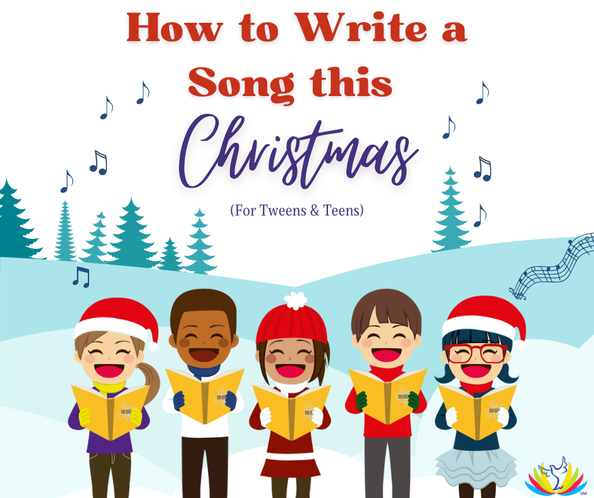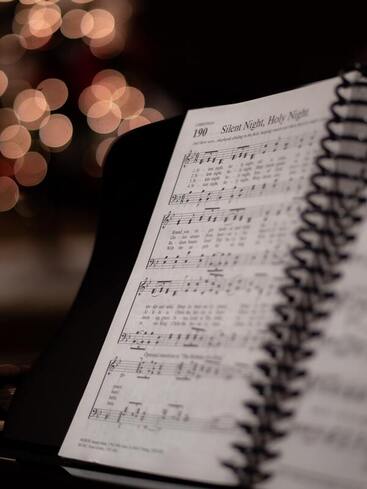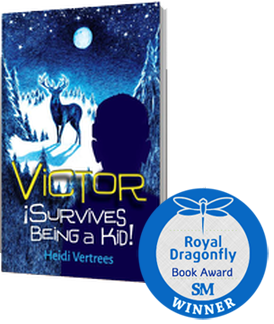|
Be a songwriter this Christmas! This is a how to guide to help tweens and teens write their own Christmas song. (Author’s note—These ideas can be adapted for other times, too!) When a song really grabs your attention, do you sing along? Does the tune go through your brain hours later? Some people say music is the universal language because it can move the hearts of people everywhere. Music can actually cause our brains and nervous systems to secrete hormones to make us feel better! At Christmastime, we hear many joyful songs. Let’s have some merry fun and write lyrics based on your favorite Christmas carol. Once you choose one, see if you can find a recording. If you don’t have one at home, your parents might be able to find one for you on YouTube. Or maybe you are fortunate to have songbooks and a piano, keyboard, or guitar at home. Find a way you can listen to your favorite song many times until you can sense the tune, know the words, and sing along. Great! When learning, we also want the new information in our long-term memory, so keep enjoying that song for several days until you sing it so well you feel like you “own it.” That’s when the song feels natural to you, and you can even give it your own special style. You can sing it in different parts of your home, while you are working, or out walking. Do you know the shower really does have extra good sound effects? Your pets and family may love to hear you perform your song. Speaking of animals, do you know elephant trainers have a special song for each elephant, so they each know whom the trainer is seeking? Animals love music as many YouTubes reveal, such as horses drawing near a violinist. The song you create may even have healing power for a pet. We once had a guinea pig who cried after his furry friend passed away. When I sang a gentle hymn, he calmed down. As you create your song, think of the people and yes, animals, you may bless! Do you know prewriting is every bit as important as writing? Up till now in this project, your creativity has been with prewriting. We are now ready to get creative with new words and ideas. Since Christmas carols celebrate the birth of Jesus, our Savior, in this assignment aim to maintain that wonderful message, but—here’s the challenge--create new verses that match the rhythm and the rhyme of the song you now know so well. Here’s an example to help you, but remember, you can choose your own Christmas song. Written in 1962, “Do You Hear What I Hear” has a beautiful tune and a sweet storyline that you can use as a springboard into your new verses. This song is copyrighted. I suggest you listen to versions on YouTube. You may want, with a grownup’s help, to order the sheet music from Amazon. Once you have heard this song, did you discover each verse has a different actor who focuses on a different part of our senses? The night wind sees, the little lamb hears, the shepherd boy knows, and the king tells everyone to listen to him. This song is packed with action and beautiful scenes such as a night star that dances and has a “tail as big as a kite.” Try to notice where words at the end of phrases rhyme. In fact, rhyming words can help you memorize a song. In this song, shivers in the cold rhymes with silver and gold. One more point about the lyrics in this song—the first character talks to the second character, who then becomes the major character in the next verse. This pattern goes all the way through the song. The night wind says to the little lamb; the little lamb then says to the shepherd boy, the shepherd boy says to the king, and the king says to the people everywhere. If you use this song for your writing challenge, choose four new characters. Will they also be set in Bible times, or do you want to create a twist where your characters are in your present life? Maybe they are looking at a big, wonderful outdoor nativity scene and singing about the Christmas story. Whatever you decide, think about what important messages you want to get across. Before I write a poem or lyrics that have rhyme and rhythm, I write a list or short paragraph with my key ideas. That way, my main points serve like a magic thread that pulls my words together. Consider using different verbs/action words to spice up your story, make some words rhyme, and set your words to match the pacing of the tune. You can discover words that rhyme by changing the first letter. What rhymes with night? Light! Of course, the final syllable spellings may be different, such as tree and sea. That’s fine as long as the endings sound the same. Perhaps you have a rhyming dictionary or can see lists of rhyming words on the Internet. As you write your new verse or verses to your song, sing along with the tune to make sure your words fit with the song. Whether you write one new verse or several for a favorite song of yours, you are now a lyricist! Yes, you have created your own lyrics. Congratulations! Sing a new song and enjoy sharing your sparkling new words with others. Merry Christmas! Heidi Vertrees Author and Educator Have you read my new book Victor Survives Being a Kid? If not, ask an adult to learn more about it with you by visiting my book page HERE!
1 Comment
11/2/2022 02:15:27 pm
Human former minute.
Reply
Your comment will be posted after it is approved.
Leave a Reply. |
Archives
November 2023
CategoriesAll Christian Writing Prompts Christian Writing Prompt That Helps Kids See God's Love For Them Christian Writing Workshops Songwriting Prompts Students Writing With Strong Voice Teaching Reluctant Writers Writing-with-strong-voice |
COPYRIGHT 2023, NEWSONG PRESS





 RSS Feed
RSS Feed